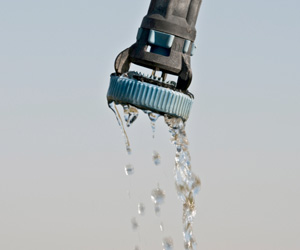 Dec. 14, 2012 – Larry Krueger’s water softener failed after two years, causing nearly $45,000 in damages. Recently, a state appeals court ruled the economic loss doctrine does not bar a lawsuit by Krueger’s home insurer against the company that manufactured the water softener.
Dec. 14, 2012 – Larry Krueger’s water softener failed after two years, causing nearly $45,000 in damages. Recently, a state appeals court ruled the economic loss doctrine does not bar a lawsuit by Krueger’s home insurer against the company that manufactured the water softener.
Krueger’s insurer, State Farm Fire and Casualty, sued Hague Quality Water International and its insurer, the Cincinnati Insurance Company, alleging negligence and products liability.
State Farm said the defective water softener that Krueger bought leaked a substantial amount of water that damaged drywall, flooring, and woodwork in the house. However, the Sheboygan County Circuit Court dismissed the case based on the economic loss doctrine.
In State Farm Fire and Casualty Co. v. Hague Quality Water International, 2012AP392 (Dec. 12, 2012), the District II Wisconsin Court of Appeals reversed.
The three-judge panel noted that Wisconsin courts “employ the economic loss doctrine to bar the recovery of purely economic losses in consumer transactions through tort remedies where the only damage is to the product purchased by the consumer.”
However, the panel also explained that the economic loss doctrine does not bar tort actions for personal injury or damage to “other property” caused by product defects, so long as the plaintiff survives the “integrated system” and “disappointed expectations” tests.
“If the damaged property is part of an integrated system with a defective product, any damage to that property is considered to be damage to the product itself” and tort claims would be barred by the economic loss doctrine, Judge Reilly explained.
The panel ruled that the damaged drywall, flooring, and woodwork were not part of an integrated system with the water softener, distinguishing cases involving defective cement causing damage to concrete paving blocks and a defective gear that damaged a printing press.
Further, under the disappointed expectations test, the economic loss doctrine precludes tort-based recovery if the product is expected to interact with other property and the product failed to meet the buyer's expectations of quality. That is, the buyer’s claim is couched in disappointment.
For instance, a homeowner who bought treated windows “that eventually led to rot not only in themselves but also in surrounding siding could not sue in tort as the claims were due to the disappointment that the windows did not perform as expected in preventing rot,” Reilly wrote.
But Krueger’s water softener, the panel explained, was not purchased to prevent water leaks and damage to other property such as dry wall. “The drywall, flooring, and woodwork were not damaged by a failure of the water softener to soften water but by a defect independent of the water softener’s function of softening water,” Judge Reilly explained.
The panel rejected the argument that a reasonable purchaser of a water softener should foresee the risk of water leakages and can’t recover in tort when a leak actually occurs, noting that “reasonable foreseeability” is different from “foreseeable interaction” with other property.
“There is no evidence that, as part of its function as a water softener, the water softener was ‘expected and intended to interact with’ the drywall, flooring, and woodwork that was damaged in the case,” Judge Reilly explained.
The panel reversed the lower court’s order granting summary judgment to Hague Quality Water International and its insurer and remanded the case.
Joe Forward is the legal writer for the State Bar of Wisconsin.
